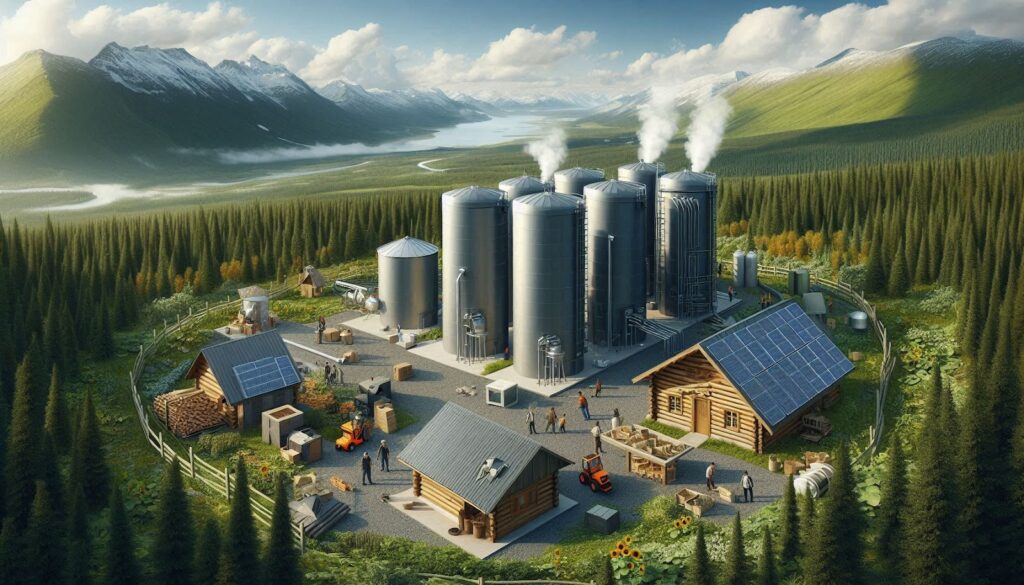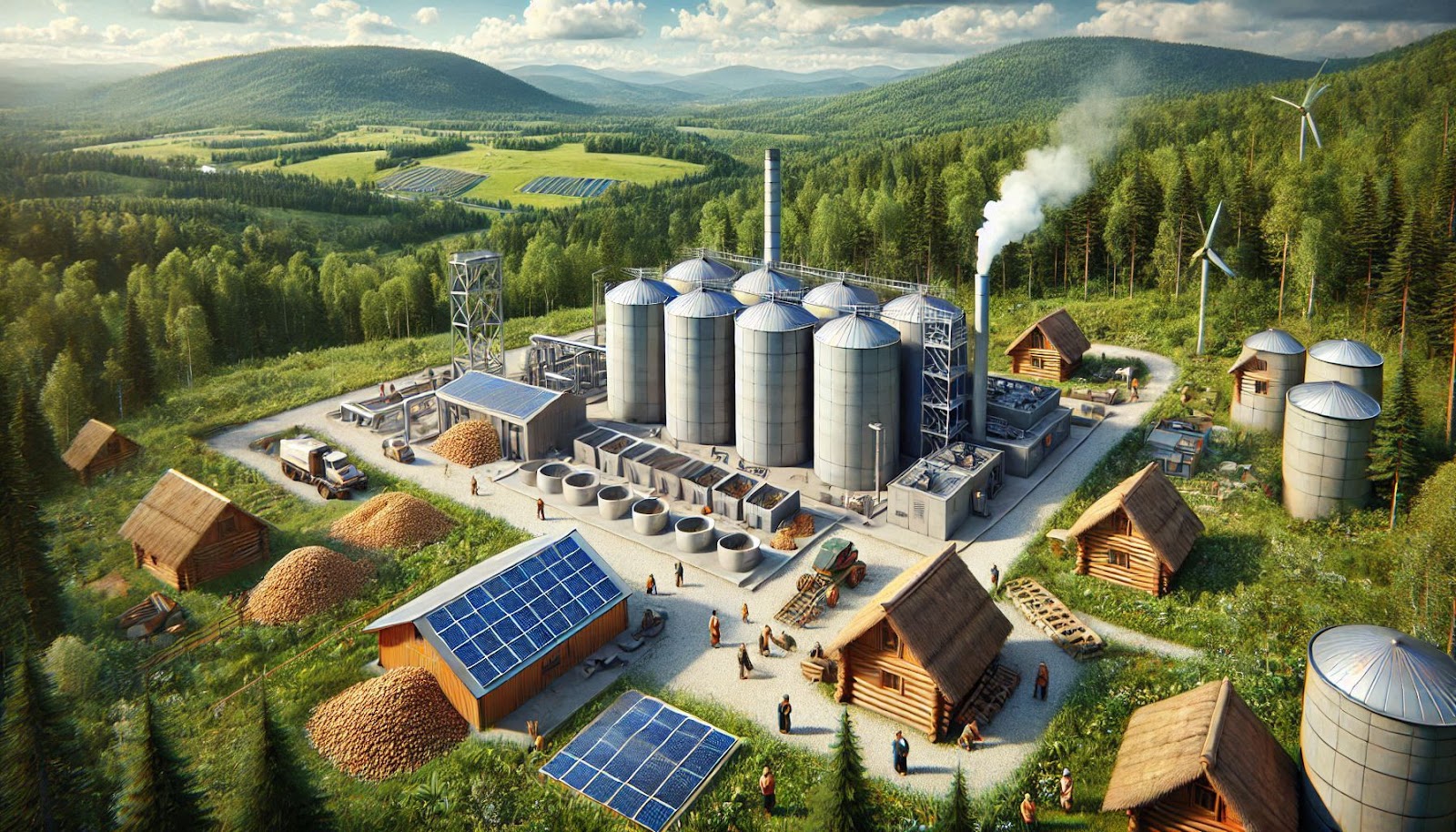In the heart of the United Arab Emirates, a remarkable transformation is taking shape that challenges conventional wisdom about sustainable living. While many associate green technology with premium prices, the emergence of cheap property in Ajman is proving that environmental consciousness and affordability can coexist harmoniously. This evolving narrative is reshaping the landscape of sustainable urban development in the Middle East, offering a blueprint for other rapidly growing cities worldwide. The emirate’s innovative approach to combining cost-effective housing with green solutions is creating a new paradigm that could revolutionize how we think about sustainable urban development in emerging markets.
Desert Diamonds: Ajman’s Solar-Powered Property Renaissance
The scorching Arabian sun, once considered a challenge for comfortable living, has become Ajman’s greatest asset in its journey toward sustainability. Local developers are harnessing this abundant natural resource through innovative solar integration techniques that go far beyond traditional rooftop panels. Building facades now incorporate photovoltaic glass that generates electricity while maintaining the aesthetic appeal of modern architecture, transforming entire structures into power-generating entities.
The implementation of these solar solutions has shown remarkable results, with newer developments reporting energy cost reductions of up to 47% compared to conventional buildings. This significant saving is directly passed on to residents, making sustainable living more accessible to middle-income families. The success of these initiatives has sparked a competitive race among developers to incorporate increasingly efficient solar technologies.
Recent data from the Ajman Municipality reveals that solar-powered properties have experienced a 15% higher occupancy rate compared to traditional developments. This trend indicates a growing awareness and preference for sustainable living options among tenants, even in the affordable housing segment. The municipality’s green building certification program has certified over 200 properties in the past year alone, marking a significant shift in the real estate landscape.
What sets Ajman’s approach apart is the innovative financing models that make these solar installations possible without significantly impacting property prices. Through public-private partnerships and government incentives, developers can offset the initial costs of solar technology implementation, maintaining competitive pricing while delivering sustainable solutions. The average return on investment period for solar installations has decreased from 8 years to just 4.5 years, making it an increasingly attractive option for property developers.
The Hidden Oasis: Water Conservation Technologies in Budget-Friendly Buildings
Water scarcity has long been a critical concern in the UAE, prompting Ajman’s property developers to implement sophisticated water management systems that are as cost-effective as they are efficient. These systems represent a remarkable fusion of traditional desert wisdom and modern technology, creating sustainable solutions that don’t break the bank.
Advanced greywater recycling systems have been integrated into newer developments, allowing up to 75% of household water to be reused for irrigation and non-potable purposes. These systems operate using gravity-fed mechanisms wherever possible, reducing operational costs and maintenance requirements. The innovation lies in the simplicity of the design, which makes implementation feasible even in budget-friendly properties.
Developers have also introduced smart water metering systems that use artificial intelligence to detect leaks and optimize usage patterns. These systems have demonstrated average water savings of 32% across participating properties, with some developments achieving savings of up to 40%. The real-time monitoring capabilities allow for immediate intervention when issues arise, preventing waste and reducing maintenance costs.
The economic impact of these water conservation measures has been significant, with participating properties reporting an average reduction in water bills of AED 3,600 per unit annually. This saving has become a strong selling point for budget-conscious buyers and renters, demonstrating that environmental responsibility can align perfectly with financial prudence. The success of these initiatives has led to their adoption as standard features in new affordable housing projects across Ajman.
Breathing Life: Smart Ventilation Systems Revolutionizing Affordable Housing
The challenge of maintaining optimal indoor air quality while minimizing energy consumption has sparked innovative solutions in Ajman’s affordable housing sector. The emirate’s property developers have pioneered smart ventilation systems that leverage natural air currents and advanced sensor technology to create comfortable living environments without excessive energy use.
These systems incorporate wind towers, a traditional Arabian architectural element, reimagined with modern technology. Sensors continuously monitor air quality, temperature, and humidity levels, automatically adjusting ventilation patterns to maintain optimal conditions. The integration of IoT devices allows for precise control and monitoring, ensuring efficient operation while minimizing energy consumption.
Recent studies conducted by the Ajman University of Science and Technology have shown that these smart ventilation systems reduce air conditioning costs by up to 35% while improving indoor air quality by 60%. The systems have proven particularly effective during the challenging summer months, when traditional cooling methods typically result in skyrocketing energy bills.
The implementation costs have been kept manageable through standardized designs and local manufacturing partnerships, allowing developers to include these systems in affordable housing projects without significant price increases. The average additional cost per unit is approximately AED 12,000, which is typically recovered through energy savings within two to three years.
Green Beats: The Rhythm of Energy-Efficient Construction
The construction industry in Ajman has undergone a remarkable transformation, embracing innovative building materials and techniques that prioritize both sustainability and affordability. Local manufacturers have developed new composite materials that combine recycled content with traditional building materials, creating cost-effective solutions that don’t compromise on quality or environmental impact.
These materials, including recycled aggregate concrete and locally sourced sustainable alternatives, have demonstrated superior thermal performance compared to conventional options. Testing has shown that buildings constructed with these materials maintain indoor temperatures an average of 4°C lower than traditional constructions, reducing cooling requirements and associated energy costs.
The adoption of modular construction techniques has further enhanced the sustainability profile of affordable housing projects. This approach reduces construction waste by up to 90% while accelerating project completion times by 40%. The faster construction timeline translates to lower labor costs and reduced environmental impact during the building phase.
Property developers have reported that these innovative construction methods have resulted in an average cost reduction of 18% compared to traditional building techniques, while simultaneously improving the environmental performance of the finished buildings. This cost saving has been instrumental in maintaining competitive pricing in the affordable housing market while delivering superior environmental performance.

Digital Green: Smart Technology Integration in Budget Properties
Ajman’s affordable housing sector has embraced smart technology solutions that maximize energy efficiency without adding significant costs to property prices. The integration of artificial intelligence and IoT devices has created a new standard for sustainable living that remains accessible to middle-income residents.
Central to this approach is the implementation of smart home systems that optimize energy usage based on occupancy patterns and environmental conditions. These systems leverage machine learning algorithms to predict and adjust energy consumption, resulting in average energy savings of 28% compared to conventional properties. The technology has been simplified and standardized to keep implementation costs low while maintaining effectiveness.
Cloud-based building management systems have been deployed across multiple developments, allowing for centralized monitoring and optimization of resource consumption. These systems have demonstrated remarkable efficiency gains, with participating properties reporting reduced maintenance costs of up to 35% and improved response times to technical issues.
The integration of these technologies has been achieved through innovative financing models that spread the cost over time, making them accessible to budget-conscious buyers and renters. The average monthly premium for smart technology features is approximately AED 150, while the resulting utility savings often exceed AED 300 per month.
Community Catalysts: Collaborative Sustainability Initiatives
The success of Ajman’s sustainable affordable housing movement has been significantly enhanced by community-led initiatives that promote environmental consciousness and resource efficiency. These grassroots efforts have created a unique ecosystem where sustainability becomes a shared responsibility rather than just a building feature.
Resident-managed recycling programs have achieved impressive results, with participating communities reporting recycling rates of up to 65%, significantly higher than the emirate’s average. These programs have been designed to be cost-neutral, with the revenue from recycled materials offsetting operational costs and sometimes even generating small returns for community improvement projects.
Community gardens and urban farming initiatives have taken root in many affordable housing developments, providing both environmental and social benefits. These projects have reduced the urban heat island effect while providing residents with access to fresh produce, creating a tangible connection between sustainable living and daily life.
The establishment of sustainability committees within residential communities has facilitated knowledge sharing and collective action. These committees have successfully implemented various initiatives, from energy-saving competitions to educational programs, creating a culture of environmental consciousness that extends beyond individual properties.
Economic Ripples: The Financial Impact of Green Solutions
The integration of sustainable technologies in Ajman’s affordable housing sector has created significant economic benefits that extend far beyond reduced utility bills. This transformation has generated new employment opportunities and stimulated local innovation in green technology.
Property values in developments with comprehensive green solutions have shown remarkable resilience, appreciating an average of 12% more than conventional properties over the past three years. This trend has challenged the perception that sustainable features are luxury additions, demonstrating their value as sound investments even in the affordable housing segment.
The growth of the green building sector has created over 3,000 new jobs in Ajman, ranging from technical positions in solar installation and maintenance to roles in sustainable property management. Local educational institutions have responded by developing specialized training programs, creating a skilled workforce capable of supporting the continued expansion of sustainable housing initiatives.
The economic success of these initiatives has attracted increased investment in green technology research and development, with several international companies establishing operations in Ajman to tap into this growing market. This has created a virtuous cycle of innovation and cost reduction, making sustainable solutions increasingly accessible to the affordable housing sector.


